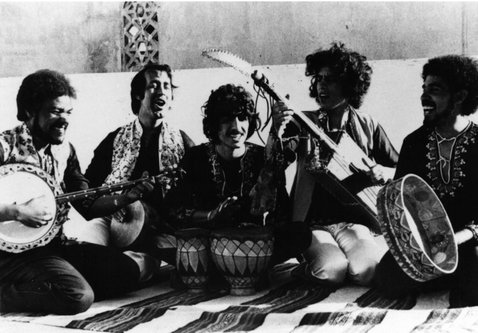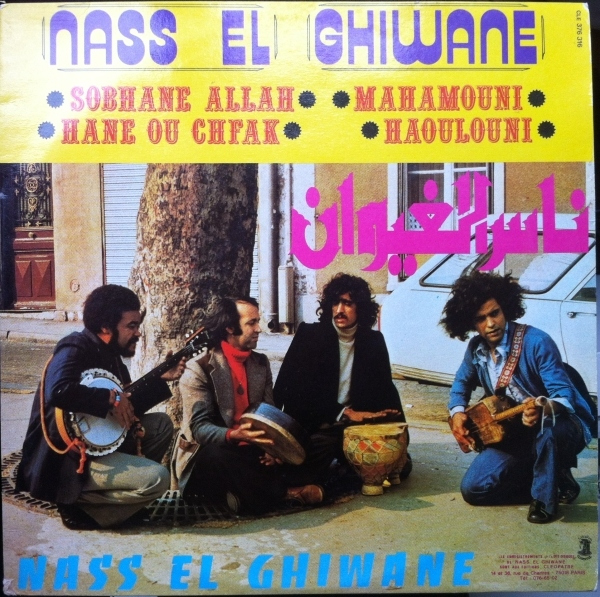
Nass El Ghiwan
Nass El Ghiwan are one of Morocco’s most famous musical groups. Sadly, outside of that country’s borders they are almost entirely unknown. The band was formed in 1971 as part of an avant-garde political theater troupe, but quickly evolved into the band now recognized. They are credited as being among the first to introduce Western instruments into Morocco, as well as representing an important bridge between American and European psychedelic culture and North Africa. They are closely aligned with Gnawa, a deeply spiritual music which is indigenous to Morocco, but with long roots. It’s a hybrid of ancient ecstatic Islamic trance music, and other traditions from the Sub-Saharan part of the continent. It is the country’s most popular music. Despite its spiritual origins, stemming from gestures by groups like Nass El Ghiwane, secular realizations of Gnawa have been developing since the early 70’s. Moroccan music is incredibly important for a number of reasons. With the rise of Wahabism and other extreme realizations of Islam in recent decades, the rich and ancient musical traditions of North Africa and the Middle East have come under grave threat. Because of the country’s liberal attitude toward music, these sounds are among the few in the Islamic world which survive in their country of origin.
Though I’m at a loss to remember how I discovered them, I’ve been looking for records by Nass El Ghiwan for years. Though there are some French pressings, most were Moroccan, and never left that country. Having spent time there, I can tell you that they’re equally rare at the source. When I discovered this film I was overjoyed. Transes was made in 1981 by Ahmed El Maanouni. It takes the form of most music documentaries from the 70’s – heavily utilizing performance footage, interviews, and following the members of the band. Two things ring through. The music and the spirit. The film captures an optimistic and progressive era in the Islamic world. Though this still exists for many in Morocco, at the time sounds like these spread across the entire region. This film is a reminder of the human spirit, what can go wrong, the power of music, and the threat it can pose to conservative forces. In addition to the film, I’m posting a short review below of Nass El Ghiwan’s sixth record, which was recently reissued in Europe. I hope you enjoy them both.
Transes (1981)
